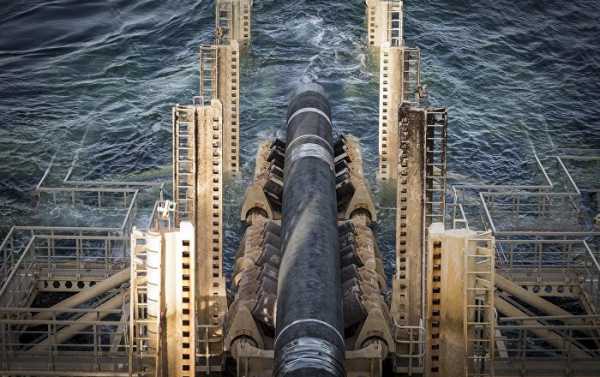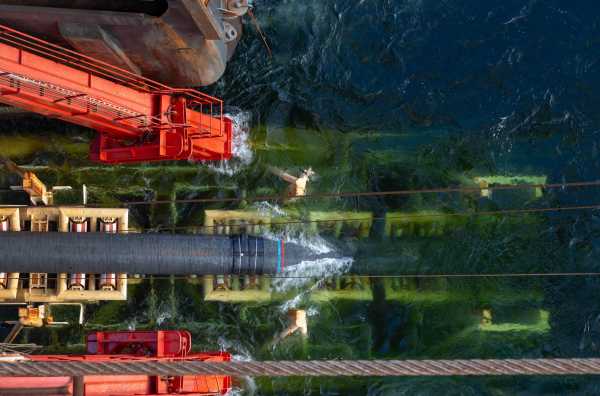
The project is nearing its completion, as Nord Stream 2 AG – the operator of the gas pipeline – previously announced it would be ready in a few months.
The German Committee on Eastern European Economic Relations asked Brussels on Wednesday to provide instruments that would shield the Nord Stream 2 project from American sanctions.
In the meantime, German Chancellor Angela Merkel has opposed the sanctions because they have extraterritorial effect, adding that the restrictions may negatively affect the gas transit negotiations between Russia and Ukraine.
The statement comes one day after the US Senate passed a $738 billion defence bill for the 2020 fiscal year, which includes sanctions against Nord Stream 2, TurkStream, and bars military-to-military cooperation with Russia.

Nord Stream 2 pipeline being laid.
The law is expected to be signed by 20 December 2019, meaning that the sanctions could come into force this week.
Nord Stream 2 is facing constant pushback from the United States, with Washington repeatedly claiming that the project poses a danger to European security and trying to promote its liquefied natural gas on the European market. Ukraine is also actively criticising Nord Stream 2, fearing it will lose revenue from Russian gas transit to Europe.
The pipeline is a joint venture between Gazprom and five European companies: France’s ENGIE, Austria’s OMV, the UK-Dutch conglomerate Royal Dutch Shell, and Germany’s Uniper and Wintershall. Nord Stream 2 will carry up to 55 billion cubic metres (1.942 trillion cubic feet) of gas per year from Russia to Germany.
Sourse: sputniknews.com






